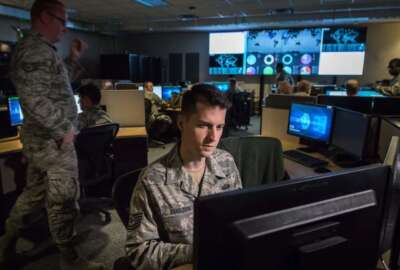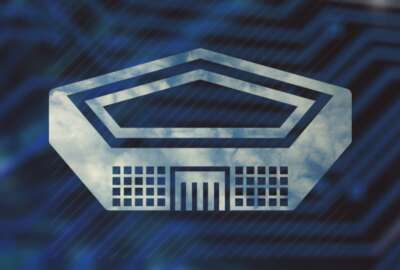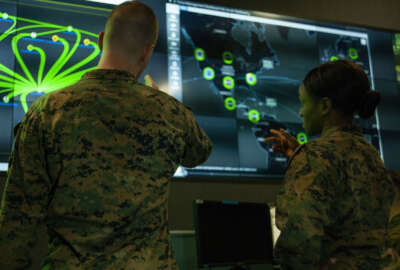The Pentagon is building out infrastructure to facilitate the implementation of AI technologies in a secure and sustainable way, and Alpha-1, a new portfolio of services, will be central to the effort.
Alpha-1 is not merely a platform but rather a set of capabilities and tools that the armed services and other DoD agencies can use to accelerate the development of AI technologies.
“Alpha-1 is the one that is starting to get momentum to enable AI and ML scaffolding,” Navy Capt. Xavier Lugo, who leads the Chief Digital and Artificial Intelligence Office’s Task Force Lima, said during the Center for Strategic and International Studies event Tuesday.
By ‘scaffolding,’ Lugo means laying out the foundational structure for the development of AI. Scaffolding includes data labeling as a service, federated model catalogs and test and evaluation capabilities, among other components.
The first service Alpha-1 made available to the DoD was data labeling.
“Data labeling was found to be a huge gap across the department. The program offices that were very mature — they already had their own data labeling services, but that came with constraints and caveats. For example, the data was not necessarily owned, wasn’t necessarily shared,” said Lugo.
Three programs — the Navy’s Project Harbinger, the Coast Guard’s maritime object detection, and the Marine Corps’ Smart Sensor — are now using the data labeling services CDAO’s Alpha-1 provides.
“Now the program offices, what they need to be worried about is building models and integrating those models into the weapons systems,” said Lugo.
Lugo said there is plenty of agility in the process. Suppose a program office estimated it needed a certain amount of data labeling services, but in reality, it needed more or less of those services. In that case, his office has the ability to “level load the capacity.”
“We’re not prescribing any particular technology, we’re not prescribing any particular standard. All we ask is that your data is available for everybody and you’re interoperable, so don’t come up with a customized way, then it won’t fit into the Alpha-1 program,” said Lugo.
Alpha-1 and its autonomy line of effort
Alpha-1 will support various autonomy projects across the DoD, including the Replicator initiative, or the DoD’s effort to field low-cost AI-powered drones.
The CDAO is in the midst of establishing a data and AI hub to support the Replicator initiative and Alpha-1 is tasked with setting up infrastructure of components of the hub.
Under the autonomy line of effort, Alpha-1 will make modeling and simulation capabilities available to the services. Lugo’s team is also looking to leverage the similarities of autonomy across weapon systems, specifically when it comes to data.
“If I got data for an aircraft A, the Navy aircraft will probably benefit from the same data set,” he said.
“We are enabling autonomy, specifically perception autonomy. I have to be very specific about that. Because there’s two pieces. There’s multiple pieces to autonomy. Perception autonomy is the closest to taking a sensor and using AI to determine what that sensor saw. There’s another piece of autonomy, which is C2 autonomy, command and control of a particular vehicle — that is still left at the program offices to develop. That is not what we’re enabling at this time.”
Last week, Congress approved the final set of 2024 spending bills, giving the CDAO $10 million for projects focused on autonomy. Lawmakers also want the Pentagon to provide a report to House and Senate Defense committees within the next two months that identifies collaborative objectives for for each service, combatant command and defense agency participating in Alpha-1 in 2024.
Copyright
© 2024 Federal News Network. All rights reserved. This website is not intended for users located within the European Economic Area.






